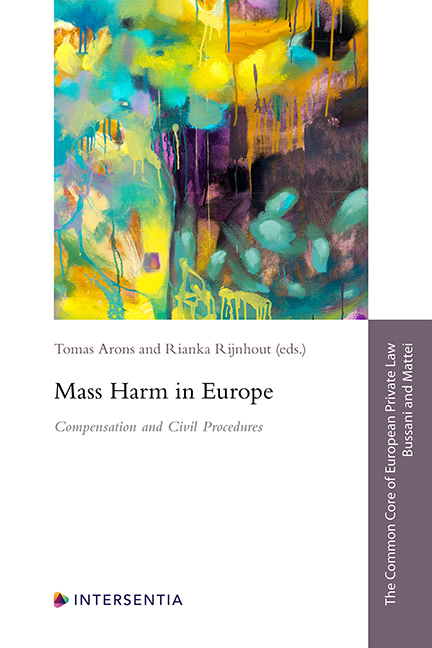Case 5: Product Liability
Published online by Cambridge University Press: 03 April 2024
Summary
CASE
In 2020, a producer of an electric bike recalls the units of its product made between 2012 and 2015. After the bike was placed on the market by the producer, it became apparent that the battery could explode when it was not being used. Upon closer examination by the producer, it became clear that there was a safety defect due to battery design failures. No consumers suffered personal injury, but explosions caused damage to other private property of theirs. Research showed that the battery was already unsafe in 2012, when it was placed onto the market by the producer. The producer knew or could have known about this defect. Therefore, the producer cannot put forward the (European) state of the art defence.
A group of consumers whose batteries exploded and consequently lost other possessions such as garden chairs demand compensation from the producer. Will they receive compensation and, if so, for what losses? And is it possible to start a collective proceeding? If so, please indicate the most important bottlenecks in this particular case.
DISCUSSIONS
AUSTRIA
Matthias Dangl and Georg E Kodek
Operative Rules
Austria has implemented the Product Liability Directive into domestic law by way of the Produkthaft ungsgesetz (PHG). In this case, claims could be based on this statute. However, there is a €500 deductible for harm to things (as opposed to personal injury).
In order to avoid this deductible, the claim could be based on general tort law (§ § 1293 ff Allgemeines Bürgerliches Gesetzbuch (Austrian Civil Code) – ACC). The argument would then be that the contract between the producer and the retailer also entails duties of care vis-a-vis the customers. As opposed to claims based on the PHG, fault of the producer has to be proven. As the producer knew or could have known about the defect, it seems possible to prove the producer’s fault in this case. Also, all claimants, of course, have to prove that they suffered a loss because of an explosion of the battery.
A collective action (as described in the Austrian section in the procedural rules chapter) would be possible.
- Type
- Chapter
- Information
- Mass Harm in EuropeCompensation and Civil Procedures, pp. 239 - 262Publisher: IntersentiaPrint publication year: 2023



